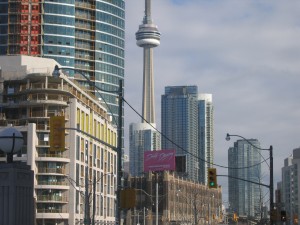 The Real estate bubble or otherwise commonly referred to as housing or property bubble is an economic bubble, which comes about periodically in either a global or local real estate market. It is mostly defined by the sudden increase in valuations of property like housing for a while until they get to a point where they are unsustainable and thereafter decline.
The Real estate bubble or otherwise commonly referred to as housing or property bubble is an economic bubble, which comes about periodically in either a global or local real estate market. It is mostly defined by the sudden increase in valuations of property like housing for a while until they get to a point where they are unsustainable and thereafter decline.
Toronto’s home prices are set to fall over the next three years by 15% as per the report released by Toronto -Dominion economists. Toronto, according to the Royal Bank of Canada is one of the hotspots with a lot of activity in the housing market. Then according to the Canadian Mortgage and Housing Corp, the Canadian housing market is now cooling off. Speculation has started to maul over the residents of Toronto after the recent changes in the rules governing mortgage lending. Last month, Jim Flaherty, the finance minister changed amortization periods.
According to the homeandcondo.ca, the maximum amortization period used to be 30years but then changed to 25 years. Such changes, coupled with the expected interest rates rise from the Bank of Canada, have left people fearful of the effects that will transpire to the Canadian housing industry. It is said that such changes will mostly affect the new homeowners, because they make 50% of the new home purchases and 25% of the re-sales.
Since housing prices mostly respond to the subsequent changes in the housing market, home sales have consequently declined by 4% in the last two months. The bull market in Canada and Toronto to be specific that has lasted a decade, has not been because of economic drivers such as income growth, scarcity in housing nor the growth in the economy.
The rise in housing pricing has by far outpaced GDP and wage growth. Because of the increased debt, accumulation in personal credit as well as mortgages, housing pricing has increased. A decline in future debt by many households will imply that the main factor for real estate growth performance, will not be around to provide the much needed push to steer the real estate market forward. Unlike Vancouver, Toronto is defying the fact that the housing bubble is about to burst, but could be expected to comply with the current situation over the next two years.
All the same, according to Greater Toronto Realtors association, the much feared Toronto market could suddenly be cooling off after all this time. After it put in place much stricter rules, and a whole lot of bubble warnings, customers have now become much more cautious. However, the Toronto Real Estate Board clearly stated that land transfer tax was pulling down its housing market.
Condos on the other hand experienced the greatest slump, when it dropped by 18%. Recently, according to brokers and agents, the demand market in pre-constructed condos could be significantly less than that for finished units already in the market.
In all fairness, it is safe to say that buying decisions have been put on hold because of the new lending guidelines set out by the Toronto Real Estate Board.
